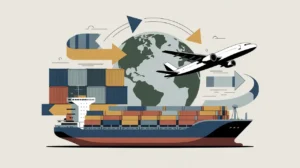Importance of Maritime Transport
Maritime transport is the backbone of global trade, carrying the majority of goods exchanged worldwide. It connects producers and consumers across continents, lowers costs of trade, and supports economic growth. In international development, maritime transport is vital for export-oriented economies, small island states, and coastal communities that rely on shipping for essential imports. For nonprofits and social innovators, maritime transport matters because it influences supply chain efficiency, environmental impacts, and equitable access to global markets.
Definition and Features
Maritime transport refers to the movement of goods and people over seas and oceans using ships and related infrastructure. Its defining features include:
- Global Connectivity: enabling international commerce and integration into global markets.
- Infrastructure Dependence: reliant on ports, logistics networks, and shipping fleets.
- Cost Efficiency: the lowest-cost method of long-distance bulk transport.
- Environmental Impact: significant contributor to greenhouse gas emissions and marine pollution.
How this Works in Practice
In practice, maritime transport includes container shipping, bulk cargo, tankers, and passenger ferries. For example, containerized shipping has revolutionized global trade by standardizing transport and reducing costs. Development programs often focus on improving port infrastructure, reducing trade bottlenecks, and ensuring compliance with international safety standards. Barriers include vulnerability to global supply chain disruptions, piracy in some regions, high emissions, and inadequate infrastructure in developing countries.
Implications for Social Innovation
Maritime transport has important implications for social innovation as the sector adapts to sustainability and inclusion challenges. Innovations include green shipping technologies, digital logistics systems, and port-community partnerships that improve efficiency and equity. For proximate actors, maritime transport determines access to essential goods, export opportunities, and integration into global trade. Maritime transport is essential for connecting economies and sustaining international development.







